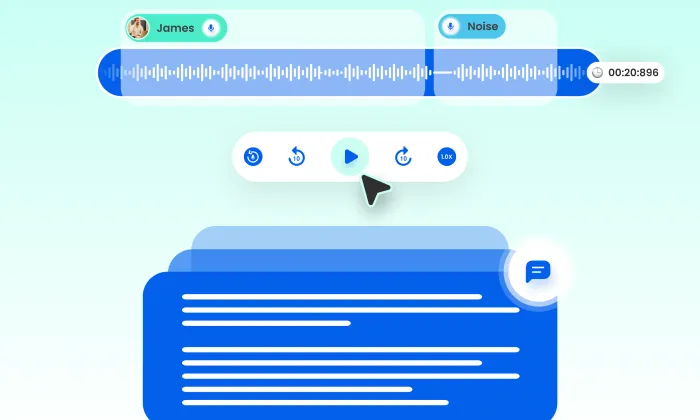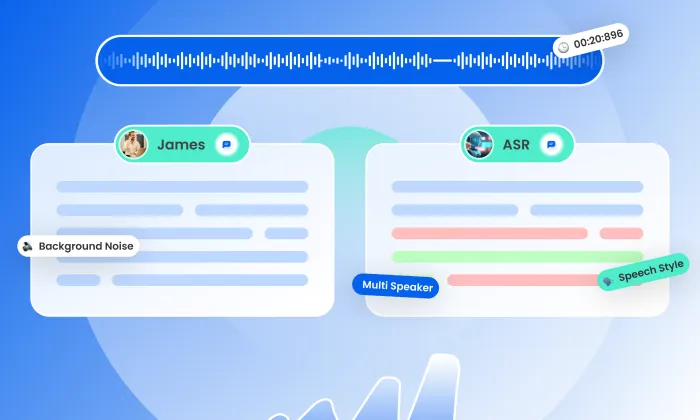Is there an industry standard for ethical voice cloning dataset creation?
Voice Cloning
Ethics
Speech AI
In the rapidly evolving world of AI, voice cloning technology is at the forefront, offering exciting possibilities but also raising ethical concerns. Creating voice cloning datasets involves not only technical precision but also a commitment to ethical standards that protect individual rights and ensure diverse representation. While there is no universally adopted standard, emerging guidelines and best practices are shaping the industry.
Understanding Voice Cloning Datasets
Voice cloning datasets are collections of audio recordings used to train AI models to replicate human speech. These datasets can vary, including scripted, unscripted, conversational, and emotional recordings.
Ethical considerations are paramount, focusing on consent, diversity, and transparency to safeguard contributors and enhance model performance.
Why Ethical Dataset Creation Matters
- Consent and Transparency: Obtaining informed consent from voice contributors is non-negotiable. Contributors must be clearly informed about how their recordings will be used and have the ability to revoke consent if needed. This transparency builds trust between data providers and contributors.
- Diverse Representation: Diverse datasets are essential for creating inclusive AI models. By capturing a range of accents, dialects, genders, and age groups, we not only improve model performance but also ensure the technology serves a broader audience. FutureBeeAI, for instance, supports over 100 languages with attention to gender and regional balance.
- High-Quality Data: Quality recordings are crucial for effective voice cloning. Using professional studio environments minimizes noise and maximizes clarity. Standard specifications, like WAV format at 48kHz, ensure that the nuances of speech are captured accurately.
Steps for Creating Ethical Voice Cloning Datasets
- Contributor Onboarding and Consent: Engaging potential speakers starts with a robust onboarding process that includes identity verification and explicit consent. Utilizing platforms that streamline demographic verification can enhance this process, ensuring that contributors are fully aware of their rights and the uses of their data.
- Recording Environment and Quality Assurance: Recording in controlled studio environments is vital for high-quality audio. A comprehensive quality assurance (QA) workflow should include manual inspection of audio files, reviews by audio engineers, and the use of tools like Audacity for sound quality assessment. This diligence ensures that the final dataset is free from defects like reverb or clipping.
- Emphasizing Diversity: Effective voice cloning relies on datasets reflecting the diversity of human speech. FutureBeeAI emphasizes this by including a minimum of two speakers per language, representing a range of attributes such as gender and accent. This diversity not only enhances model accuracy but also reduces biases.
Challenges and Solutions
Creating ethical datasets presents challenges, such as balancing quality and diversity. However, leveraging technology for better quality assurance and ensuring legal compliance can mitigate these issues. It's essential for teams to stay informed about global data protection regulations beyond GDPR to navigate the complex legal landscape effectively.
Learning from Industry Leaders
Experienced teams advocate for proactive engagement with contributors and communities. By gathering feedback during dataset creation, organizations can identify areas for improvement and address contributors' concerns. Regular audits of dataset practices ensure that ethical standards are continuously upheld.
Navigating the Future of Voice Cloning
As voice cloning technology progresses, establishing ethical standards for dataset creation will remain crucial. Organizations must stay abreast of emerging best practices, adapting their strategies to prioritize consent, diversity, and quality. By doing so, they contribute to the development of responsible, inclusive voice cloning technologies.
By adhering to these principles, FutureBeeAI positions itself as a leading, ethical partner in the AI data landscape, ready to support projects with high-quality, diverse voice datasets tailored to specific needs.
Smart FAQs
Q. What are the essential elements of consent in voice cloning?
A. Consent in voice cloning involves clearly explaining the specific uses of the voice recordings, obtaining explicit agreement from contributors, and ensuring their understanding of data usage rights and potential revocation.
Q. How can organizations ensure diversity in their voice cloning datasets?
A. Organizations can ensure diversity by actively recruiting a wide range of speakers, setting quotas to reflect varied demographics, and emphasizing the importance of including different genders, ages, and accents in their datasets.
What Else Do People Ask?
Related AI Articles
Browse Matching Datasets
Acquiring high-quality AI datasets has never been easier!!!
Get in touch with our AI data expert now!








